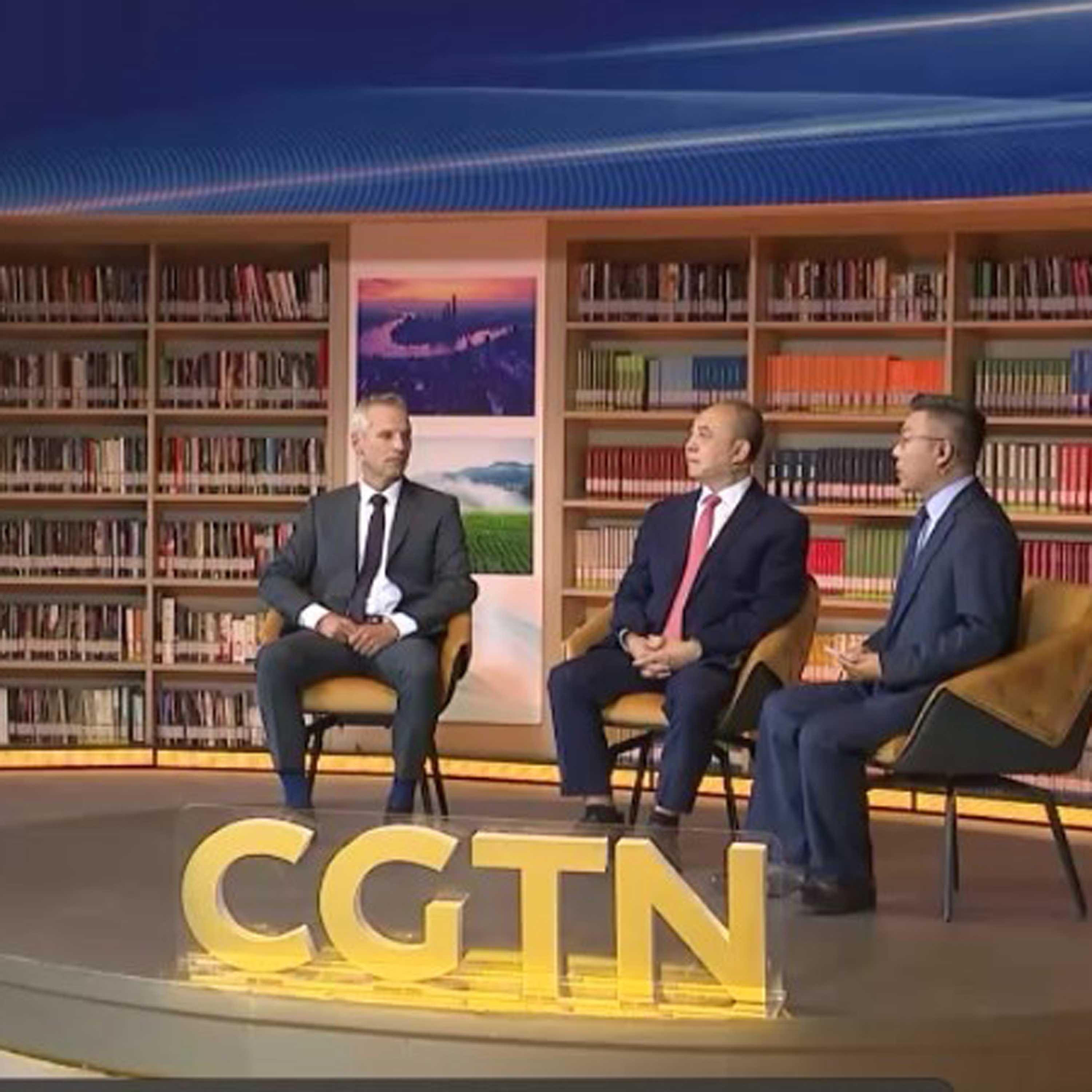Discover Dialogue
Dialogue

Dialogue
Author: China Plus
Subscribed: 26Played: 704Subscribe
Share
© Copyright @ China Plus
Description
Dialogue covers a wide range of topics, providing a balanced and critical perspective on current affairs and analysis within the framework of cross-cultural and multidisciplinary comparisons. Hundreds of heads of state, diplomats, business leaders and culture icons have appeared on the show.
799 Episodes
Reverse
Japan has entered a rare moment of political limbo. The decades-old LDP–Komeito coalition that long ruled Japanese politics has abruptly collapsed, leaving newly-elected LDP leader Sanae Takaichi struggling to form a new government coalition. Meanwhile, opposition parties are in talks to weigh the possibility of uniting behind a joint candidate. Why did the ruling coalition fall apart? What political concessions might Takaichi make to secure support from smaller parties? And could Japan now be on the brink of its first major power shift in more than a decade?
China has expanded export controls on rare earth elements following Washington's new measures that Beijing regards as violating the Madrid agreement. In response, the U.S. president has threatened a 100-percent tariff on Chinese goods. Why does Washington continue to impose punitive measures on China despite the Madrid agreement? What does Beijing's tightening of rare earth exports mean for U.S. industries? As the U.S. imposes new fees on Chinese vessels and Beijing prepares to respond, are we witnessing the start of another round of trade war between the two sides?
With both Israel and Hamas confirming the first phase of a Gaza ceasefire agreement, there is finally a moment of respite after more than two years of devastating conflict. While lasting peace remains uncertain, this breakthrough has been widely welcomed by the international community. So, how will the initial agreement be implemented? What challenges lie ahead? And who will take the lead in rebuilding and governing Gaza after the war?
China's 14th Five-Year Plan is coming to an end. Since 2021, the blueprint has guided the country through pandemic shocks, trade tensions and a slowing global economy, while driving new industries, stronger R&D and a push for greener growth. But not every goal has been met and challenges remain. What will the next plan need to deliver? How can China break through bottlenecks, sustain high quality growth, and balance development with national security in uncertain times?
Beginning 5,000 years ago with cultures like Liangzhu, diverse Chinese regional civilizations interacted and integrated, ultimately forming the unified foundation of Chinese civilization.
Two years into the Israel-Hamas conflict, new talks begin. Can deep divisions be overcome for a hostage deal and a path toward peace and reconstruction?
Over the past years, China has experienced a significant transition in its energy sector. With constant environmental progress, the country is getting greener and cleaner. How has China achieved this? What is its global impact? What are some of the challenges at China aims to achieve carbon neutrality in 2060?
From the world's largest high-speed rail network to ground breaking space exploration and cutting-edge AI industries, China has rapidly transformed into a global tech powerhouse. What's the story behind this remarkable transformation? How are tech advancements impacting our life and even global cooperation? What are China’s future goals of tech innovation? And what are the implications for the world? To unpack these questions, we embark on a journey of China’s tech revolution with our guests.
U.S. President Donald Trump has unveiled a 20-point peace plan to end the conflict in Gaza following talks with the Israeli prime minister. The plan calls for an immediate end to fighting, the disarmament of Hamas, and the withdrawal of Israeli troops from Gaza. Is the plan sincere and fair? Will Hamas and the Palestinian people accept it? Can it truly bring peace and stability to the region?
China is celebrating the 70th anniversary of the founding of Xinjiang Uygur Autonomous Region. What lessons can be drawn from its development path? What challenges still lie ahead? How will the northwestern region's future shape China and its neighbors?
This year marks the 70th founding anniversary of the Xinjiang Uygur Autonomous Region. Once an isolated and barren land, the far-western Chinese region is now a vibrant hub where people of all ethnic backgrounds enjoy peace and prosperity. What transformations has the region experienced? What have been the challenges along the way and what opportunities still lie ahead for this developing region?
Chinese President Xi Jinping launched the Global Development Initiative at the UN General Assembly in 2021, calling for shared growth and faster progress on the 2030 Sustainable Development Agenda. Four years on, as the UN marks its 80th anniversary, the world is facing grave challenges. President Xi recently proposed the Global Governance Initiative. How can China's perspective support the 2030 agenda?
In conflicts and crises from Ukraine to Gaza, from Sudan to Myanmar, the big question is: How can these conflicts be resolved? What role do the global powers and international institutions play in today’s fractured world?
The U.S. Federal Reserve has cut its benchmark interest rate by 25 basis points. It's the first cut since December 2024. The move follows months of easing inflation. It also comes amid a cooling labor market and mounting political pressure from U.S. President Donald Trump. What does it mean for businesses, consumers and the global economy? How will China and other countries respond?
Chinese and U.S. experts attending a high-level defense and security forum in Beijing share their perspectives on relations between the two countries. They discussions include issues such as the video call between the two defense chiefs, China-U.S. trade and economic ties and the Trump administration's Asia-Pacific strategy.
The Chinese and U.S. delegations have concluded their latest trade talks in Spain. According to the China international trade representative, the two sides engaged in candid, in-depth and constructive communication based on mutual respect and equal consultation, and reached a basic framework consensus on resolving issues related to TikTok. How did the talks go? What can we take away from the statements afterwards? Can we expect more deals in the next stage?
Israel has launched a rare and controversial strike in the capital of Qatar, hitting a Hamas delegation in the middle of ceasefire and hostage negotiations. The attack killed several people, though the group's top negotiators survived. What was Israel hoping to achieve? Will there be more such overseas attacks? What consequences could follow? How might Arab states and the wider international community respond?
China is wrapping up its 14th Five-Year Plan—marked by industrial upgrading, green growth, and a drive for tech independence, with manufacturing still the backbone. But challenges remain: deflationary pressures, supply chain risks, and geopolitical headwinds. How has the plan delivered? What gaps remain? And what adjustments might Beijing make for the next five years?
More than 20 Western countries say they are ready to deploy troops to Ukraine in a "reassurance force" the day after a ceasefire is agreed. This announcement comes after France and Britain co-hosted a summit for the "Coalition of the Willing" on Thursday. How credible is this EU commitment? Will the U.S. join the move? What has been the Russian response?
Experts share their perspectives on issues including China's contributions to World War II, its efforts to defend post-war order and Sino-U.S. cooperation during the war.





